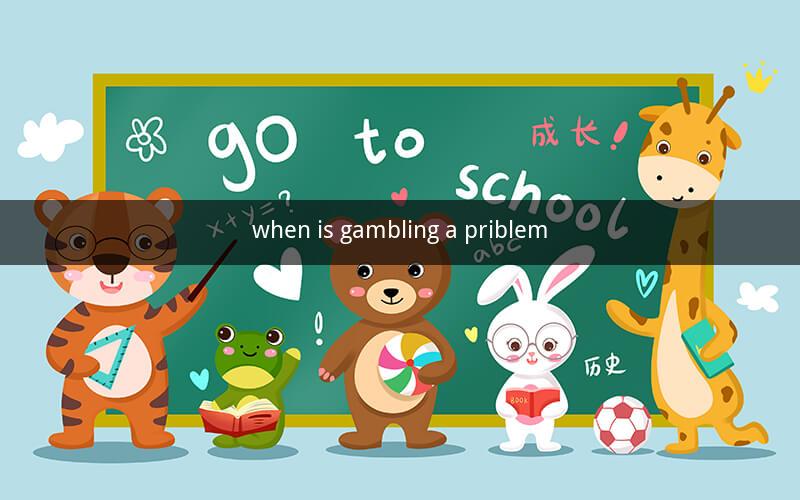
Understanding the Concept of Problem Gambling: When Does It Cross the Line?
Table of Contents
1. Definition of Problem Gambling
2. Signs and Symptoms of Problem Gambling
3. Factors Contributing to Problem Gambling
4. Impact of Problem Gambling on Individuals and Society
5. Recognizing Problem Gambling in Yourself or Others
6. Treatment and Support for Problem Gamblers
7. Prevention Strategies and Resources
1. Definition of Problem Gambling
Problem gambling refers to a harmful pattern of gambling behavior that disrupts an individual's personal, professional, or social life. It can manifest as excessive betting, chasing losses, or the inability to control gambling activities. Problem gambling can lead to severe consequences, including financial, psychological, and social issues.
2. Signs and Symptoms of Problem Gambling
Identifying problem gambling involves recognizing the following signs and symptoms:
- Increasing time and effort spent on gambling
- Preoccupation with gambling, even when not engaged in the activity
- Borrowing money to finance gambling
- Repeated unsuccessful efforts to control, cut back, or stop gambling
- Gambling when feeling depressed, lonely, or stressed
- Lying to hide the extent of gambling activities
- Jeopardizing or losing a significant relationship, job, or education due to gambling
3. Factors Contributing to Problem Gambling
Several factors can contribute to the development of problem gambling. These include:
- Genetic predisposition: Research indicates that a person's risk of problem gambling can be influenced by genetic factors.
- Psychological factors: Low self-esteem, impulsivity, and depression can increase the likelihood of developing a gambling problem.
- Social factors: Exposure to gambling activities, having gambling-friendly friends, and living in a gambling-friendly environment can contribute to problem gambling.
- Environmental factors: Easy access to gambling opportunities, such as online casinos or casinos near home, can make it more challenging to control gambling behavior.
4. Impact of Problem Gambling on Individuals and Society
Problem gambling can have profound consequences for individuals and society:
- Financial: Problem gamblers may experience severe financial difficulties, including bankruptcy, loss of assets, and financial dependency on others.
- Psychological: Problem gambling can lead to depression, anxiety, substance abuse, and other mental health issues.
- Social: Relationships may suffer due to gambling-related behaviors, including dishonesty, neglect, and abuse.
- Legal: Problem gamblers may face legal consequences, such as theft, fraud, or embezzlement, as they attempt to finance their gambling habits.
- Societal: Problem gambling can burden healthcare systems, law enforcement, and social services, leading to increased costs for taxpayers.
5. Recognizing Problem Gambling in Yourself or Others
If you suspect that you or someone you know may have a problem with gambling, consider the following questions:
- Are you preoccupied with gambling, even when you're not engaged in the activity?
- Have you tried to control or stop your gambling but been unsuccessful?
- Have you experienced financial, emotional, or social difficulties as a result of gambling?
- Have you lied about your gambling activities?
- Are you experiencing feelings of guilt, anxiety, or depression related to gambling?
If you answer yes to any of these questions, it may be time to seek help.
6. Treatment and Support for Problem Gamblers
Treatment for problem gambling typically involves a combination of therapy, support groups, and self-help strategies. Here are some treatment options:
- Cognitive-behavioral therapy (CBT): CBT helps individuals recognize and change gambling-related thoughts and behaviors.
- Family therapy: Family therapy can help improve communication and resolve conflicts resulting from problem gambling.
- Support groups: Groups such as Gamblers Anonymous and Gam-Anon provide a supportive environment for individuals and their families affected by problem gambling.
- Medications: In some cases, medications may be prescribed to address underlying mental health issues contributing to problem gambling.
7. Prevention Strategies and Resources
Preventing problem gambling involves a combination of education, awareness, and support. Here are some strategies:
- Educate yourself and others about the risks of problem gambling.
- Encourage responsible gambling practices, such as setting limits and taking breaks.
- Promote healthy coping mechanisms for stress and anxiety, such as exercise, hobbies, and social activities.
- Seek support from friends, family, or professionals if you suspect a gambling problem.
Related Questions and Answers
1. Q: Can problem gambling be cured?
- A: Problem gambling can be effectively managed with appropriate treatment and support.
2. Q: Is problem gambling a form of addiction?
- A: Yes, problem gambling is often considered a form of addiction, as it involves compulsive behavior and can lead to severe consequences.
3. Q: How can I help a loved one who is struggling with problem gambling?
- A: Encourage them to seek help, offer support, and learn about problem gambling to better understand their situation.
4. Q: Can children be affected by problem gambling?
- A: Yes, children of problem gamblers are at a higher risk of developing gambling-related issues later in life.
5. Q: Is online gambling more dangerous than traditional gambling?
- A: Online gambling can be more accessible and have a higher potential for problem gambling due to its convenience and anonymity.
6. Q: How can I recognize problem gambling in myself?
- A: Look for signs such as preoccupation with gambling, financial difficulties, and lying about gambling activities.
7. Q: Can problem gambling be caused by stress?
- A: Yes, stress can contribute to the development of problem gambling, as individuals may turn to gambling as a coping mechanism.
8. Q: Are there any support groups for family members of problem gamblers?
- A: Yes, Gam-Anon and other support groups are available to help family members cope with the challenges of problem gambling.
9. Q: How can I prevent my children from developing a gambling problem?
- A: Educate them about the risks of gambling, set a positive example, and encourage responsible decision-making.
10. Q: Can problem gambling be treated with medication?
- A: Yes, some medications may be prescribed to address underlying mental health issues contributing to problem gambling.